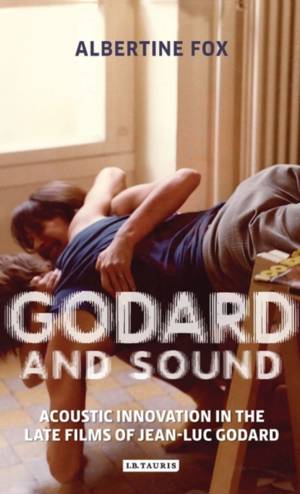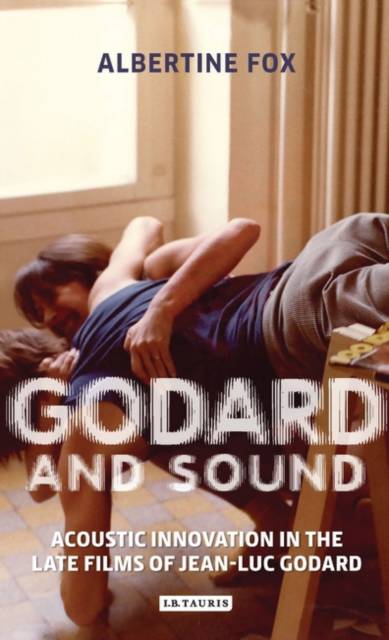
- Afhalen na 1 uur in een winkel met voorraad
- Gratis thuislevering in België vanaf € 30
- Ruim aanbod met 7 miljoen producten
- Afhalen na 1 uur in een winkel met voorraad
- Gratis thuislevering in België vanaf € 30
- Ruim aanbod met 7 miljoen producten
Zoeken
Godard and Sound Acoustic Innovation in the Late Films of Jean-Luc Godard
Acoustic Innovation in the Late Films of Jean-Luc Godard
Albertine Fox
€ 271,45
+ 542 punten
Omschrijving
What happens when we listen to a film? How can we describe the relationship of sound to vision in cinema, and in turn our relationship as spectators with the audio-visual? Jean-Luc Godard understood the importance of the soundtrack in cinema and relied heavily on the impact of carefully constructed sound to produce innovative effects. For the first time, this book brings together his post-1979 multimedia works, and an analysis of their rich soundscapes.The book provides detailed critical discussions of feature-length films, shorts and videos, delving into Godard's inventive experiments with the cinematic soundtrack and offering new insights into his latest 3D films. By detailing the production contexts and philosophy behind Godard's idiosyncratic sound design, it provides an accessible route to understanding his complex use of music, speech and environmental sound, alongside the distorting effects of speed alteration and auditory excess. The book is framed by the concept of 'acoustic spectatorship': a way of cultivating active listening in the viewer.It also draws on ideas by leading sound theorists, philosophers, musicians, and poets, giving particular emphasis to the pioneering thought of French sound engineer and theorist, Pierre Schaeffer.
Softening the boundaries between film studies, sound studies and musicology, Godard and Sound re-evaluates Godard's work from a sonic perspective, and will prove essential reading for those wishing to rebalance the importance of sound for the study of cinema.
Softening the boundaries between film studies, sound studies and musicology, Godard and Sound re-evaluates Godard's work from a sonic perspective, and will prove essential reading for those wishing to rebalance the importance of sound for the study of cinema.
Specificaties
Betrokkenen
- Auteur(s):
- Uitgeverij:
Inhoud
- Aantal bladzijden:
- 288
- Taal:
- Engels
- Reeks:
Eigenschappen
- Productcode (EAN):
- 9781784538422
- Verschijningsdatum:
- 18/02/2018
- Uitvoering:
- Hardcover
- Formaat:
- Genaaid
- Afmetingen:
- 145 mm x 221 mm
- Gewicht:
- 476 g

Alleen bij Standaard Boekhandel
+ 542 punten op je klantenkaart van Standaard Boekhandel
Beoordelingen
We publiceren alleen reviews die voldoen aan de voorwaarden voor reviews. Bekijk onze voorwaarden voor reviews.








